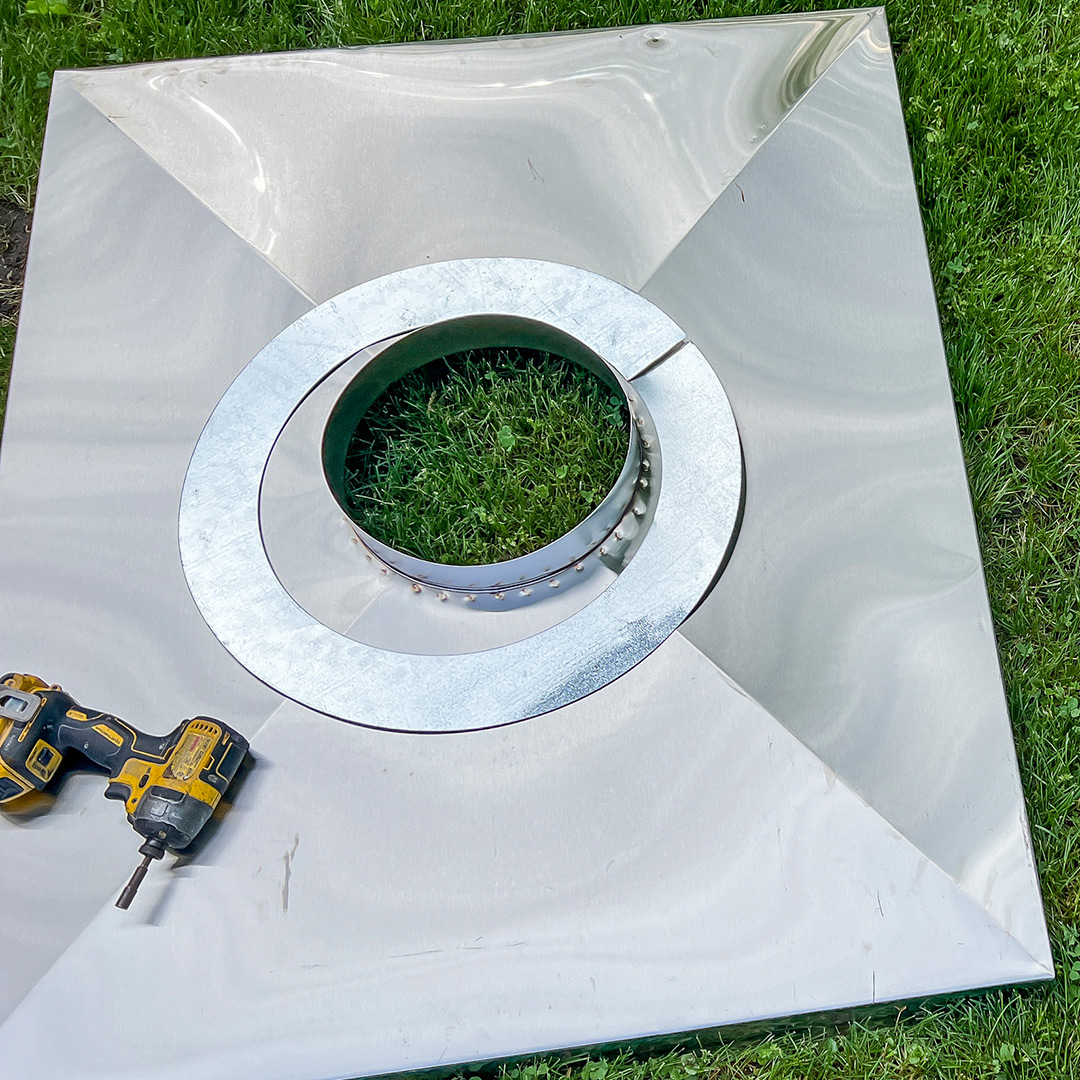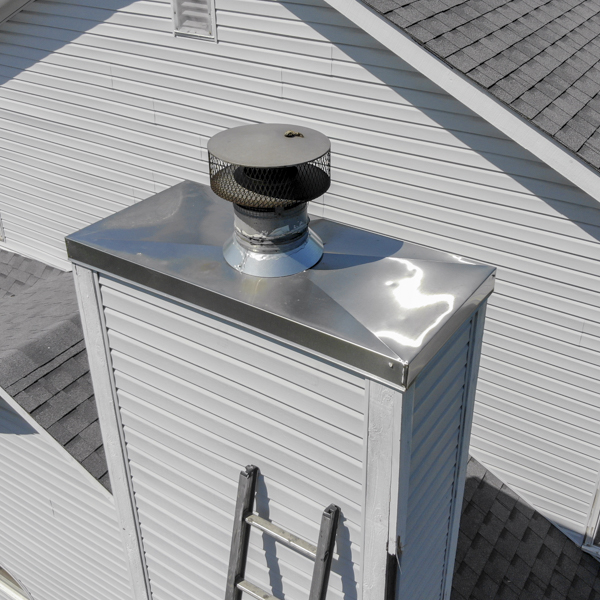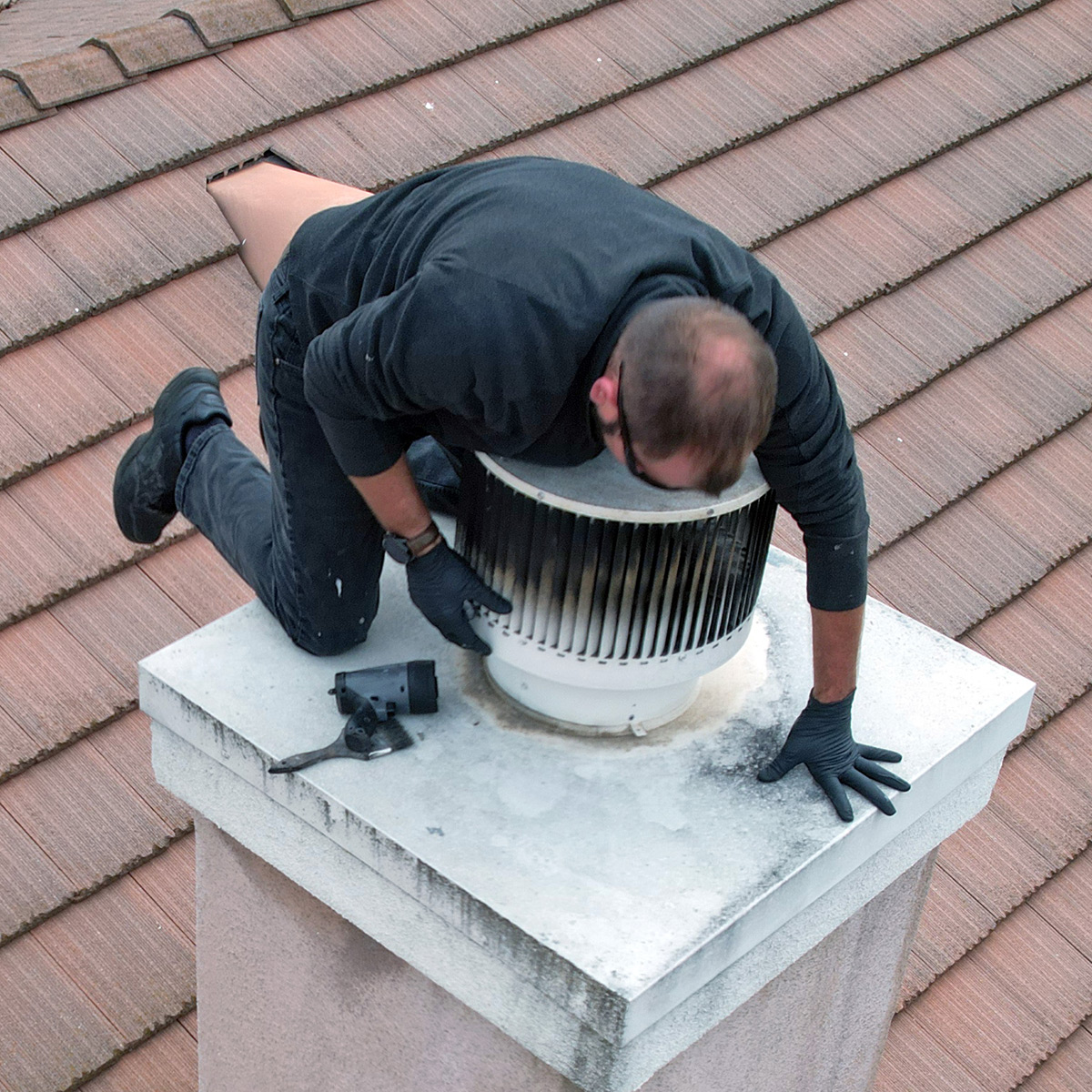What Is A Chimney Chase Cover
Within the world of fireplaces and chimneys, there are several keywords you’ll hear with relative frequency. Those include masonry, firebox, flue, cap, crown, liner, and so on. However, a lesser-known but equally important term is chase cover. What is a chimney chase cover exactly? We’ll answer that plus three more questions today, so read on to find out!
What does a chase cover do for your chimney?
Before we answer that question, we should talk about a few other traditional chimney components. When you schedule your annual Chimney Specialists inspection, our technicians will check your flashing, cap, and crown among other components. Each of those plays a role in protecting your chimney from water damage.
Flashing acts as a barrier. Your crown diverts water away from your masonry and protects the brick and rebar below. And your cap keeps the flue opening safe and secure. If any of those are missing, we’ll fix them for you.

A chase cover is functionally similar to the first two as it acts as a water barrier while diverting moisture away from the chimney and in some cases allows for pipe or chase cooling and heat exhaust. It works in conjunction with your existing chimney cap by wrapping around the top of your chimney. This serves to keep precipitation from causing damage to other parts of your home. Essentially, by working together, your cap and chase cover will protect all aspects of a prefabricated chimney from the effects of rain, snow, and humidity.
Will it need to be inspected and maintained?
Like any other part of a traditional chimney, you should schedule an annual cleaning of your chase cover. As it’s made of steel instead of concrete, you’ll want to have a professional ensure it's both rust-free and in good working order. Plus, as it works together with your cap, these two components can help to keep your flue free of debris and protect your home from the possibility of a house fire.
Do all homes need a chimney chase cover?
Earlier, we used the word “prefabricated” when describing a chase cover. That distinction is important, as a chase cover is primarily used with prefabricated chimneys instead of masonry ones. As a rule of thumb, a prefabricated chimney and fireplace is one that was built within a factory, often found in modular or mobile homes. They contain all of the traditional aspects of a system built on-site.

What happens if mine is missing?
While the first three questions we asked today are helpful to know, this last one is possibly the most important. If your chase cover is missing, you will need to get it replaced as soon as possible. Otherwise, not only could water damage your prefabricated chimney, but it can also cause other water-based problems throughout your home.
If you’re missing your chase cover on your home or you have concerns that your overall chimney system needs to be looked at, let us know. You can easily contact Chimney Sweeps, Inc by calling us at 619-593-4020 or sending us a message here to book your appointment here.
Prefabricated fireplace systems
Prefabricated fireplace systems are made of metal. Therefore, the metal nature of a rain pan is why you will need one if you have a prefab home.
If your home was hand built piece by piece and your fireplace system built on-site, you most likely won’t need a chase cover.



